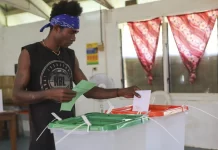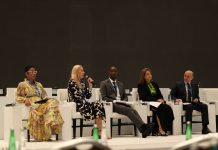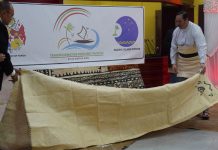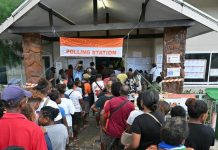The wait for island nations to vaccinate their people may only take a few months rather than years, the Pacific Community says.
The UK-based Economist Intelligence Unit had forecast that some Pacific countries may not get to vaccinate majority of their populations until at least 2025.
The group said this involved more than 60 percent of people in some countries such as Papua New Guinea, Fiji, Vanuatu and the Solomon Islands.
But the Director of Health at the Pacific Community organisation, Dr Paula Vivili, said the wait may only be a few months rather than years as initially thought.
He said projections, to some extent, have their usefulness: “it gives people an idea of possible outcomes of how the Covid-19 pandemic pans out including the vaccination programmes.”
The COVAX facility had announced it is looking at an April rollout for the Pacific.
Vivili said the vaccine production technology is changing rapidly and it was highly likely that Pacific countries would be able to roll out their Covid-19 vaccination programmes faster.
He also said the Pacific had “good friends” willing to help them get the vaccines.
“Those who have a strong link to other countries are expected to begin their vaccine processes quicker than others.
“We’ve seen the U.S-affiliated states have started their vaccine rollouts or are pretty much on their way: Guam, FSM, CNMI, American Samoa and the Marshall Islands – they have received significant numbers of the vaccine including Palau as well.
“Then there’s France of course helping New Caledonia and French Polynesia. And the rollout is soon to start in Wallis and Futuna.”
Vivili said New Zealand would help its realm countries Niue, Tokelau and the Cook Islands.
As for PNG, Solomons, Vanuatu, Fiji, Tonga, Samoa, Tuvalu and Kiribati, Vivili said Australia and New Zealand had both come strongly to commit money and technical support to help them.
Meanwhile, the World Health Organisation warned countries seeking their own Covid-19 vaccine doses were making deals with drug companies that threatened the supply for poor and middle-income countries.
WHO senior adviser Bruce Aylward told a briefing in Geneva this week that some countries were pursuing deals that could compromise the COVAX supply ‘without a doubt’.
The WHO wanted the wealthy nations to ensure vaccines were shared equitably.
Vivili agreed. He said with demand for the vaccines growing across the world, poor and middle-income countries were expected to receive the doses later than their wealthier nations.
“There’s a need for the more developed countries to be considerate,” he said.
“The issue primarily is on supply and demand and whilst there is limited supply of the vaccines, everyone will be trying to get them.”
However, Vivili warned any delay in a mass Pacific rollout would likely delay the reopening of borders.
This could have economic consequences, he said, especially for tourism-dependent countries like Vanuatu and Fiji, which usually welcomed hundreds of thousands of tourists each year, the majority from Australia and New Zealand.
Vivili said it would also be an issue because it will be difficult for travel with a limited amount of vaccinations being done.
“The impact on the economies in the region has been significant, particularly for those that rely on tourism,” he said.
“The longer in the delay in opening up of borders, the longer it will take for these economies to recover. It is the hope of all the countries to get access to the vaccines sooner than later.
“But for governments opting to begin travel between their countries, efforts must be made to ensure that all their people are vaccinated well.”
The COVAX programme aimed to supply 1.3 billion vaccine doses to poor and middle-income countries this year including the Pacific.
But so far COVAX has had a slow rollout.
“We can’t beat COVID without vaccine equity. Our world will not recover fast enough without vaccine equity, this is clear,” Bruce Aylward said.
The idea of temporarily waiving intellectual property rights for tools to fight Covid-19 is expected at next week’s meeting of the World Trade Organisation (WTO) member states.
SOURCE: RNZ PACIFIC/PACNEWS














